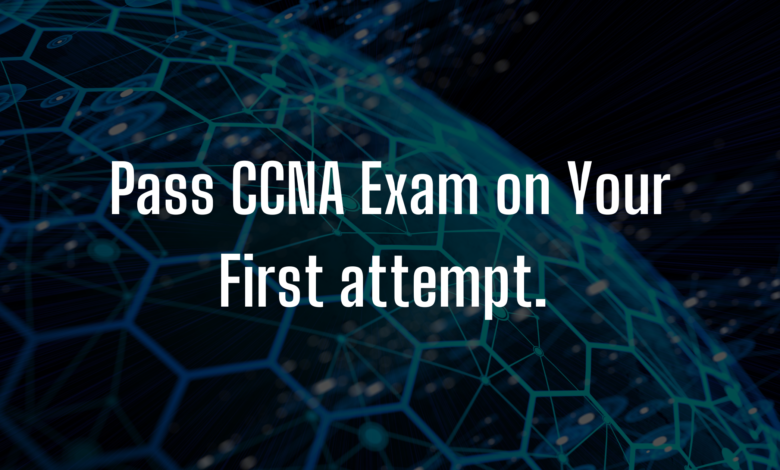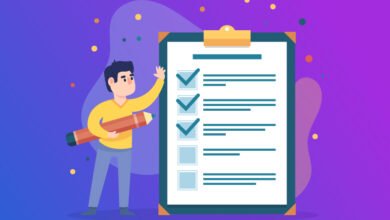How to Pass the CCNA Exam on Your First attempt

The CCNA exam is a popular certification for people who want to start a career in networking. While passing the exam on your first try may seem tough, a good plan can help you succeed. To get ready, think about joining the Best CCNA Training Institute in Bangalore .
They provide helpful resources and expert teachers to make learning easier. This guide gives you important tips, like knowing the exam format, making study plans, practicing hands-on, and taking practice tests. With hard work and the right help, you can feel confident about passing the CCNA exam and moving forward in your networking career.
1. Understand the CCNA Exam Format
Before you start studying, it’s important to know what to expect from the CCNA exam. The exam (200-301 CCNA) covers many topics, such as:
- Network basics
- IP connections and services
- Security basics
- Network automation
| Specification | Details |
| Exam Code | CCNA 200-301 |
| Exam Level | Associate |
| Exam Cost | $300 |
| Exam Duration | 120 Minutes |
| Exam Format | MCQ & Multiple Response |
| Total Questions | 90-110 Questions |
| Passing Score | Variable (750-850 out of 1000 approx.) |
| Languages | English & Japanese |
2. Create a Study Plan
A good study plan is key to passing the CCNA exam on your first try. Break your study time into smaller parts and focus on one topic at a time. Here’s an example of a study plan:
- Weeks 1-2: Learn network basics (OSI model, IP addressing, subnetting)
- Weeks 3-4: Study routing protocols (OSPF, EIGRP) and IP services
- Weeks 5-6: Focus on network automation, security basics, and troubleshooting
- Weeks 7-8: Review everything, take practice exams, and work on weak areas
Set aside time for both reading and hands-on practice. Following a schedule helps you stay organized and avoid cramming.
See also: How to Score High in Science and Technology Current Affairs Section for Competitive Exams
3. Master IP Addressing and Subnetting
IP addressing and subnetting can be tricky for many students, but they’re very important. These are basic networking skills you’ll need for the CCNA exam. It’s a good idea to practice subnetting without using a calculator. This will help you really understand it.
Make sure to focus on:
- Subnet masks
- CIDR notation (Classless Inter-Domain Routing)
- VLSM (Variable Length Subnet Masking)
Being confident in these areas will help you answer both theory and practical questions on the exam.
4. Use Cisco’s Official Study Materials
Cisco provides study resources that are perfect for preparing for the CCNA exam:
- Cisco Certified Network Associate (CCNA) Study Guide: This book covers everything you need to know for the exam.
- Cisco Learning Network: Cisco’s official site has practice tests, study groups, and tutorials.
- Cisco Packet Tracer: This tool allows you to create and test virtual network setups.
These resources are made specifically to help you prepare and offer reliable information.
5. Practice with Labs
Studying theory isn’t enough to pass the CCNA exam. You also need hands-on practice. Lab exercises will help you understand networking concepts and prepare you for real-world troubleshooting during the exam.
If you don’t have access to physical equipment, use Cisco Packet Tracer or GNS3 (a virtual network simulator). Focus on tasks like:
- Setting up VLANs and inter-VLAN routing
- Configuring routing protocols like OSPF and EIGRP
- Working with NAT (Network Address Translation)
- Creating and managing Access Control Lists (ACLs)
Repeat these exercises until you feel comfortable using the commands and solving problems.
6. Take Practice Exams
Practice exams are a great way to prepare for the real test. They help you get used to the format, time limits, and types of questions you’ll face on exam day. Many people fail the exam because they’re not ready for the pressure of a timed test. Regular practice exams can help you feel more relaxed and improve your score.
Some good sites for practice exams include:
- Boson Exam Simulators
- Cisco Learning Network Practice Tests
- ExamCompass Free CCNA Quizzes
Before taking the real exam, try to score at least 85% on your practice tests.
7. Join CCNA Study Groups and Forums
Studying with others can make learning easier. Join online groups and forums where you can ask questions, share tips, and get help from other students. Popular places to join include Reddit’s CCNA community and the Cisco Learning Network.
These groups can also keep you updated on changes to the exam and give you extra practice exercises.
8. Manage Your Time During the Exam
The CCNA exam has about 100-120 questions that you need to complete in 120 minutes. Managing your time is important so that you don’t rush at the end. Here are a few tips:
- Skip hard questions: If a question seems too difficult, skip it and come back later. Don’t spend too much time on one question.
- Practice timed exams: Get used to answering questions under time limits by taking practice tests.
- Stay calm: Don’t stress if you see something unfamiliar. Use logic to narrow down the choices.
9. Rest and Relax Before the Exam
In the final days before the exam, don’t try to learn new material. Focus on reviewing key topics and answering practice questions. Be sure to get plenty of rest. A good night’s sleep before the test will help you stay alert and focused.
Try to avoid cramming or feeling stressed. Trust in your preparation!
10. Schedule the Exam and Stay Positive
Once you feel ready, schedule your CCNA exam. Pick a date and location that works best for you. As the exam day gets closer, remind yourself of all the work you’ve done and stay positive.
Feeling a little nervous is normal, but if you stay calm and confident, you’ll do your best on exam day.
Conclusion
The CCNA exam is achievable on your first attempt with a solid plan and effort. To prepare effectively, start by understanding the exam format and creating a study plan that covers key topics like subnetting and routing. Utilizing labs and practice tests will help you grasp these concepts better. It’s essential to practice hands-on exercises to build confidence and skill in real networking scenarios.
Consider enrolling in CCNA training in Bangalore for expert guidance and valuable resources. Focus on managing your time well during the exam and keep a positive attitude throughout your preparation. Remember, your hard work and dedication will pay off. With the right approach, you can confidently pass the CCNA exam and advance your career in networking.


